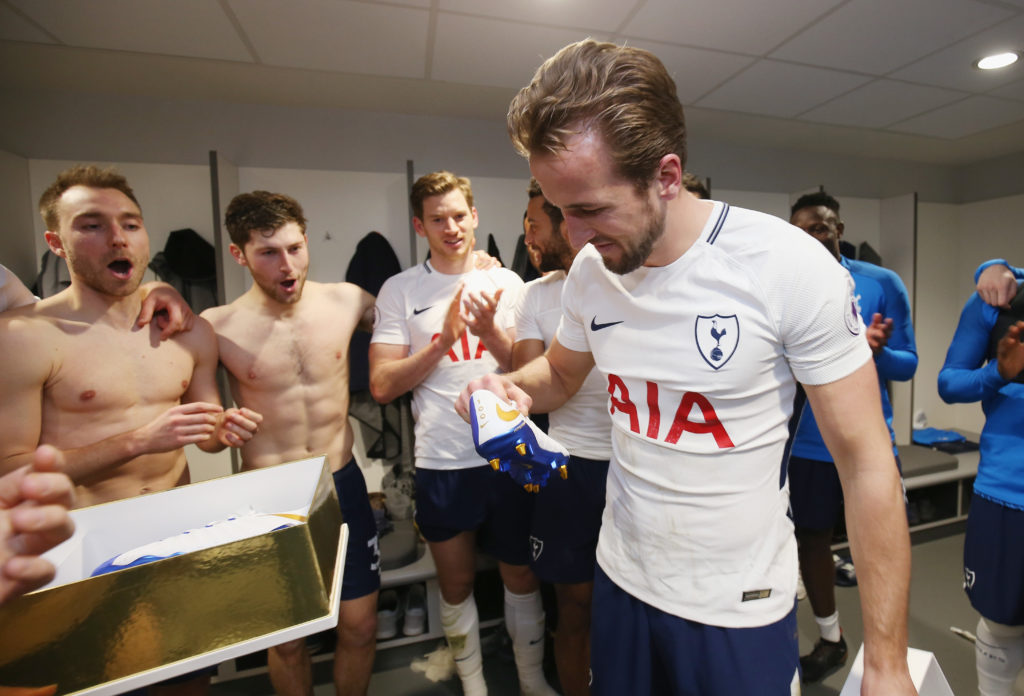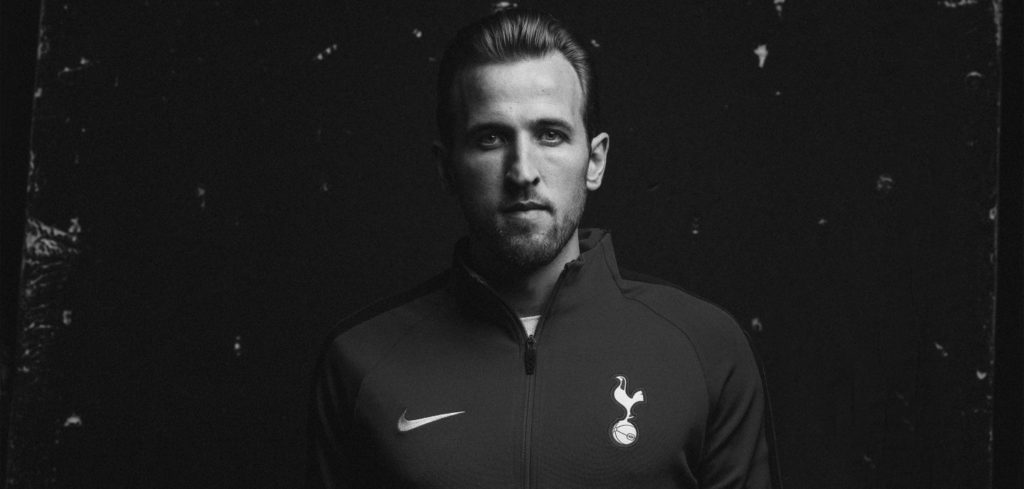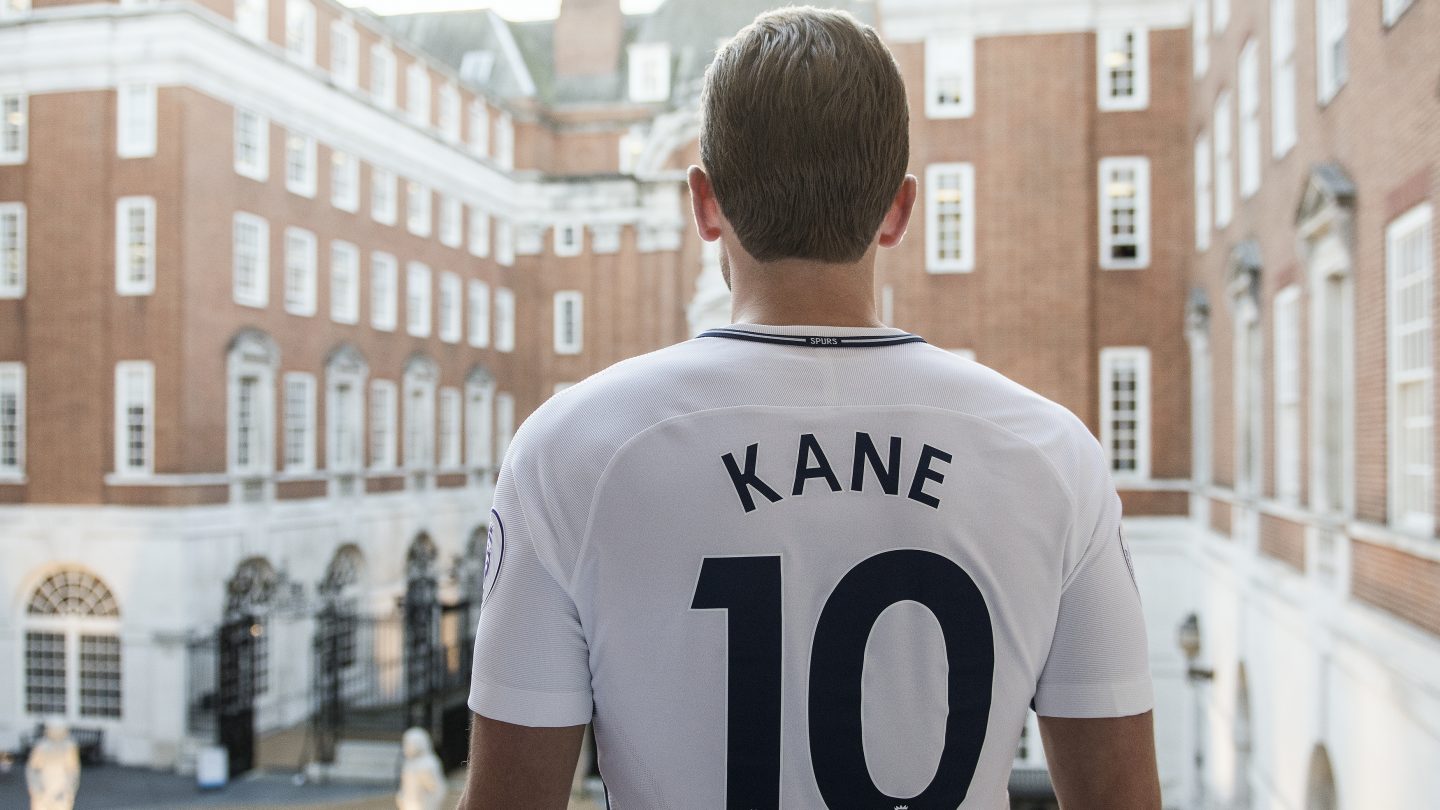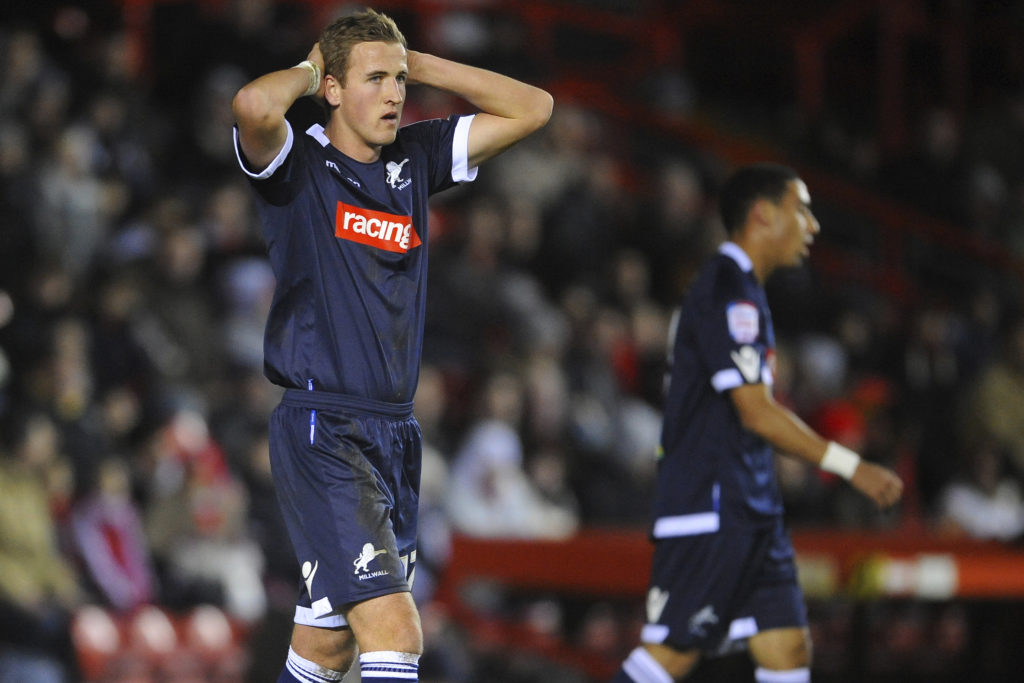Tottenham and England forward Harry Kane contributed this post to The Players Tribune about how he made himself into a 100+ goals scorer in the Premier League.
It touches on several themes that I have written about extensively in this blog including grit: passion and perseverence, learning from failure (black box thinking), having a gratitude attitude and growth mindset, realising that the difficult journey is the one that will bring you greatest success (the obstacle is the the way), resilience, and sometimes a f**k you attitude.
Enjoy!
Scott
![]()
Failure is a funny thing, when you’re a kid. I remember the day so clearly. There was this park right behind our house in Chingford, and I’d go there all the time with my dad and my brother to play football. No goals. No proper pitch. Just give us some grass and two trees and we were happy. I was playing for  ’s youth team at the time. I was behind enemy lines, so to speak, but it was a great opportunity.
’s youth team at the time. I was behind enemy lines, so to speak, but it was a great opportunity.
So one day when I was eight years old, I was walking to the park with my dad, and he said, right out of the blue, “I’ve got to tell you something.”
I said, “Yeah, what is it?”
Then I remember he put his arm around my shoulder, and he said, “Well, Harry … Arsenal have released you.”
I can’t really recall what I felt in that moment. To be honest — I don’t even think I really knew what it meant. I was too young. But I do remember how my father reacted, and how it made me feel. He didn’t criticize me. He didn’t criticise 
Looking back on it now, you’d think I would’ve been more upset. And a lot of fathers, if they were desperate for their son to be a professional footballer … they would’ve reacted quite a bit differently, I suppose. But my dad, no matter what happened — he just never put any pressure on me. He was always so positive. His classic line, in any situation, was, “Well, let’s get on with it then.”
And that’s what we did.
After 



Looking back on it now, it was probably the best thing that ever happened to me, because it gave me a drive that wasn’t there before.

I’m really happy to have reached 100 goals in the 


As the season went on, and we were still around the drop zone, some of the lads in the dressing room started to say some things that caught me off guard. “Mate, if we go down, my wages will get cut in half.” Or, “If we go down, I’ll be out of a contract.”
These were guys with little kids at home — and that’s when I started to see the game on a whole other level, really. You start to realize that some people aren’t just playing for the sport. It’s for their family’s livelihood, you know? You start to realize how delicate this all can be — and that, in football, everything you’ve worked for can go away in an instant. My experience at Millwall made me realize that I just couldn’t be a kid anymore. It was an important learning spell for me — and I don’t think it’s a coincidence that I performed very well there. More importantly, we stayed up. That’s always given me a great connection with the Millwall fans. I love them … even if they are a bit crazy sometimes.
I was hoping that I had done enough for 


That was the first time in my career, I’d say, that the doubt crept in. It’s a tough thing, doubt. My family came over later that night — and we got into kind of a heated discussion. I was so down that I told my dad I wanted to leave. It would have been a terrible mistake, but I was really doubting myself. My dad said, “Look, keep working — keep doing. Get on with it, and everything will be alright.”
A few weeks later, I was sitting in my flat again — and at the time I was really getting into the 



Turns out, Tom Brady was the 199th pick in his draft class. Imagine that. It just blew my mind — but in a good way. The film really struck a chord with me. Everyone was doubting Tom his whole life. Even when he got to college the coaches were trying to replace him with another quarterback. They showed this picture of him being weighed by the scouts before the NFL draft, and he’s got his shirt off … and it’s so funny, because he’s just looking like a regular guy, you know? And this one coach says, “We’re looking at this Brady kid, and he’s tall and gangly, and he looks like he’s never even seen a weight room.”









He reminded me of me. People were always making the same assumptions about me. “Well, you know, he doesn’t look like a proper striker.”
It was genuinely inspiring to me. Brady believed in himself so much — and he just kept working and working, almost obsessively, in order to get better. It really connected with me. This might sound strange, but it really was like this light flicked on inside my head that day, right there on my sofa in Leicester — and all of a sudden, I said, “You know what? I’m going to do it. I’m going to work as hard as possible, and my chance is going to come, and I’m going to grab it.”
A couple of matches later, we were playing against Millwall, my old team — and one of the big defenders, I guess he was trying to intimidate me. He was right behind me during a throw-in, and he said, “Oi, Harry.”
I said, “Yeah?”
He said, “I haven’t gotten any yellow cards yet.”
I said, “Errr … alright?”
And he said, “That’s good, because I’m about to use one on you.”

x
He was trying to bully me, plain and simple. The throw-in comes in … we both jump up for the header … it’s a bit of the old elbows back and forth … and wouldn’t you know it? I accidentally catch him right in the ribs. He drops to the ground, wincing, and I kind of stepped over him as he was lying there. I didn’t even say anything, you know? I just … stepped over him. It was my way of proving to him, and to myself, and to everyone, that I wasn’t going to be bullied.
The following season, I came back to Tottenham and met with the manager, André Villas-Boas. He wanted to send me out on loan again. There were a few good clubs interested in me that would’ve been OK, but that wasn’t my dream. My dream wasn’t to play in the Premier League. My dream was to play in the Premier League for Spurs.
So I told him, quite honestly, “I don’t want to go.”
As the words were coming out of my mouth, I thought, Oh, wow — maybe that wasn’t.…
He just kind of looked at me, a bit confused.
And then I just came straight out with it. I said, “I’m gonna prove to you that I should be starting on this team. And you can tell me every Friday before the game that I don’t deserve that, and that I’m not going to play. And that’s fine. But I don’t want to go.”
And that was that. He let me stay on and train with the first team — and it really ended up being the turning point in my confidence. I had always felt like I had the ability, but I kind of had to stand up for myself. It was like I could see my childhood dream, and it was right there in front of me … but it was just out of reach. I was waiting for somebody to hand it to me. But life never hands it to you, does it?
You’ve gotta grab it
![AP_17273407390001quote1-1440x810[1] Photo By Rex Features via AP Images](https://physiostrength.club/wp-content/uploads/2018/02/AP_17273407390001quote1-1440x8101-1024x576.jpg)
I was on fire in training, but I still couldn’t get a game. Then the manager was let go in the winter and Tim Sherwood took charge — and he gave me my chance. The rest, as people might say, is history. I scored three goals in my first three starts, and that was an incredible feeling, especially the first time scoring at White Hart Lane. But honestly, all the things I went through before I scored Goal Number 1 … that’s what made me who I am.
Obviously, when Mauricio Pochettino came in the following season, everything changed. Not just for me, but for the club. No one has had a bigger impact on my career than Mauricio, and that’s because he didn’t just bring a fantastic managerial philosophy to the club, he also brought us all very close together. He had an amazing career in his own right, but he almost never talks about it. As a manager, it’s never about him — it’s always about helping the players, whether it’s the best player or a player who is struggling. Of course, if you don’t want to work hard and you’re lazy … then he’s ruthless. That’s it — you won’t be playing and the door won’t be open to talk to him, either. But if you give him respect, and you work hard for him? He’ll give you all the time in the world.

One of my fondest memories in football is when I scored a hattrick a few seasons ago and Mauricio called me into his office after the match. At the time, I’d say we were close, but not super close. I wasn’t sure what he wanted. So I open the door … and he’s sitting there at his desk with a glass of red wine — probably a nice Malbec or something. Big smile on his face. And he waves me in and says, “Come on, let’s get a picture.”
So he’s got his arm around me, with his glass of wine in the other hand, and we’re taking a photo. It was brilliant. That was the first time I thought, Wow, this is a special person. He’s a fantastic, fantastic man. I respect him as a manager and as a boss, of course — but he’s really my friend outside of football, as well. He’s the reason why our squad has become so close — we’re genuine mates, and I think that’s rare in football nowadays.
For me, the rejection is the best thing that ever happened to me. When I was lacing my up boots for my first start in the North London derby back in 2015, I had a flashback to when I was 11, playing against Arsenal’s youth team. It was like déjà vu. Before every match, I always visualize scenarios in my head of exactly how I’ll score in the match. Left-foot curler into the bottom corner. Right-foot volley from the right corner of the box. I’ve always been that way. I get really detailed about it — I’ll picture my opponents and the cut of the grass and everything.
This time, I was picturing the defenders wearing the red Arsenal kit, and I got goosebumps.
We were in the tunnel, and I thought, “O.K. Took me 12 years. But we’ll see who was right and who was wrong.”
I scored two that day, and the winner in the 86th minute was something that I’d never even dream of visualizing before a match. It was a header — probably the best header I’ve ever scored — and that feeling when it hit the back of the net … I’ve never felt a rush like that in my whole career.
![e16932b3b32ff77d05c2ffcec745015a[1] https://gyazo.com/e16932b3b32ff77d05c2ffcec745015a Kane Goal against Arsenal last minute](https://physiostrength.club/wp-content/uploads/2018/02/e16932b3b32ff77d05c2ffcec745015a1.gif)
I remember walking round the pitch after the final whistle … and clapping to the fans … and it felt like, Well — I told you so.
It wasn’t just about Arsenal. It’s a little deeper than that. It was about proving something to myself, and to my family — who believed in me every step of the way. Even when I was at Millwall and Norwich and Leicester, and even when I was doubting that I could ever make it at all.
Now, after scoring 100 goals in the Premier League, it’s really time for me to say thank you to a few people.
Thank you to my fiancée Kate for putting up with me when results have not gone our way.
Thank you to my dad, for putting his arm around me at the park after Arsenal released me, and to my entire family, for talking sense into me when I was at my lowest moment in my flat in Leicester.
Thank you to my mum for the countless hours driving me here, there and everywhere, and for doing what mums do.
Thank you to my brother Charlie for going 1-v-1 against me for thousands of hours — and for letting me be Teddy Sheringham sometimes.
Thank you to Tom Brady, for giving hope to guys who look like they’ve never seen a weight room in their life.
Thank you to all my teammates, especially the guys who came up to me during training when I wasn’t getting any games, and said, “You deserve to play, mate.” That meant the world to me.
Thank you to Mauricio Pochettino for getting the most out of me as a striker.
And thank you, of course, to the Tottenham fans. I dreamed of playing for Spurs since I was a boy. For a long time my motivation was simply to close my eyes and picture myself scoring against Arsenal in the Premier League. Done that a few times now, and it never gets old. But now, my motivation is a bit different. Now, I close my eyes and I picture myself lifting the Premier League trophy at our new stadium with my mates. I’d trade the next 100 goals for that feeling.
We’ve been close the past few seasons, but there’s only one way to close the gap — and I’m afraid it’s quite a boring answer. As my dad would say, we’ve gotta keep working, keep doin’. Keep getting on with it.
COYS,
Harry




